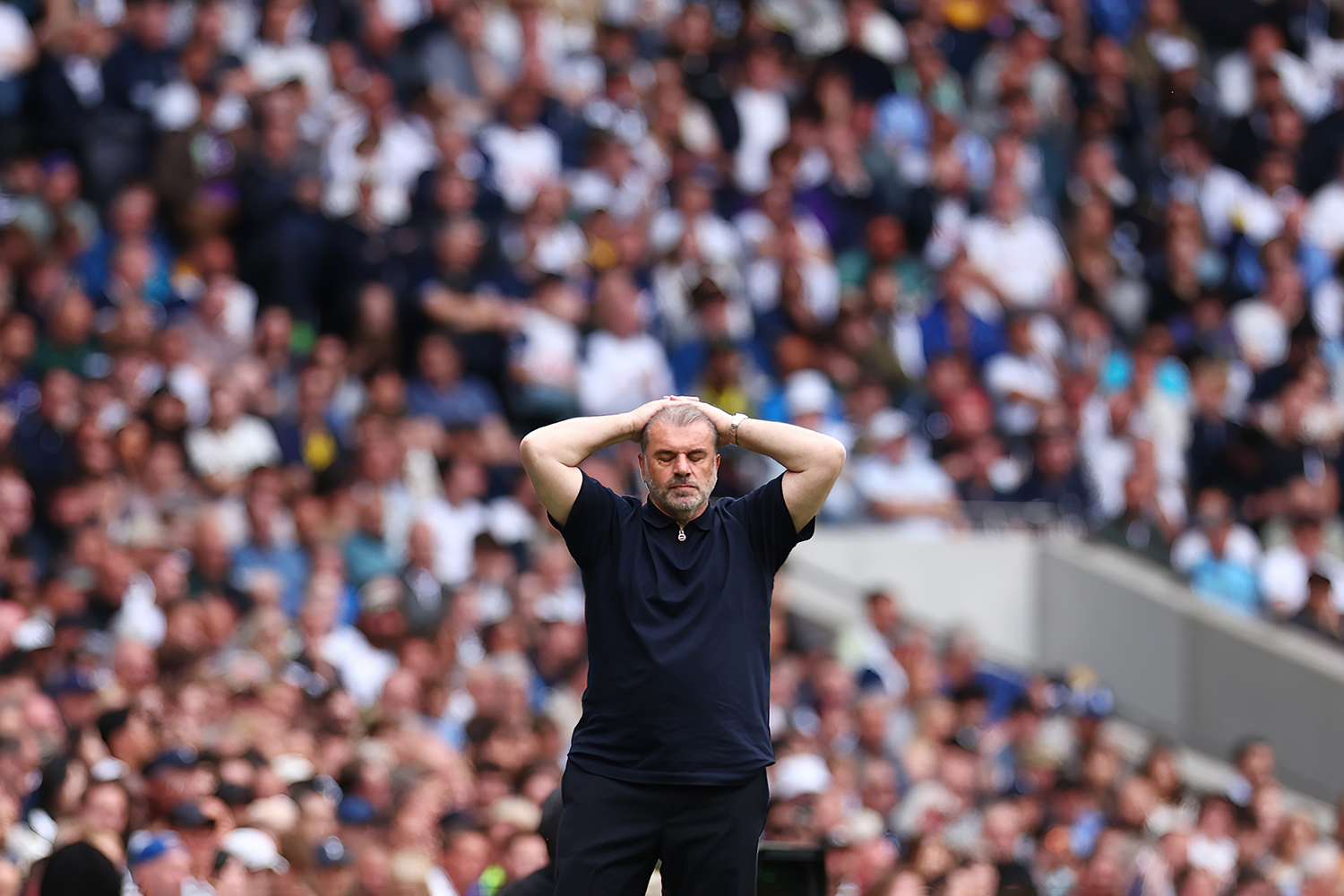At least Ange Postecoglou can count himself in good company. It is barely a couple of weeks since he looked out on a freshly adoring crowd at the victory parade to celebrate Tottenham’s first trophy in 17 years and promised them that, in football as in television, “season three is always better than season two”.
As it turns out, of course, there will be no further instalments of the Postecoglou show. Perhaps that is no bad thing. Fawlty Towers lasted for only two seasons. So did the British version of The Office, and Flight of the Conchords. Sometimes, the best way to protect a legacy is not to risk outstaying a welcome, to leave the audience wanting more.
Barely a few minutes on Friday evening separated Tottenham’s rather pointed statement confirming Postecoglou’s departure and the 59-year-old releasing his own farewell, a dignified note published through the League Managers’ Association. The speed suggested that, for all his triumphalism in the immediate aftermath of Spurs’ Europa League victory, this outcome had not come as a surprise.
In many ways, the timing is no bad thing for Postecoglou. He will be frustrated, obviously, at seeing his time in the Premier League cut prematurely short; he would doubtless have felt he deserved not just a chance to coach in the Champions League once more, but an opportunity to prove the team’s 17th place finish in the league last season was not a fair reflection of his managerial ability, but a combination of an inescapable injury crisis and a (successful) strategic choice to prioritise the Europa League.
But he does, at least, leave Spurs with his reputation enhanced. It is possible that the 22 league defeats he suffered last season will prevent him getting another top-flight job in England – in the short term, at least – but his status as the reigning winner of the Europa League will make him a tempting prospect in most other major European leagues. Erik ten Hag, pilloried during his time at Manchester United, is now in charge of Bayer Leverkusen, one of the most tempting roles in the Bundesliga. Postecoglou will see that as the floor, rather than the ceiling.
For Spurs, the ramifications are more complex. As Jack Pitt-Brooke noted on the Libero podcast, the best way to assess Postecoglou’s second, and final, season is as a sort of thought experiment: a chance to answer the age-old hypothetical as to how much domestic disappointment fans, or a club, would tolerate in exchange for a trophy.
Thanks to the Australian, we have an answer. Many of those fans who had soured on Postecoglou over the course of the campaign saw their faith restored with victory against Manchester United in Bilbao; he did, as it turned out, always win things in his second campaign. A trophy, in the context of a club starved of such glory, was a fair exchange for anything short of relegation, it seemed.
Daniel Levy, Tottenham’s chairman, has come to exactly the opposite conclusion. It seems fair to assume that Bilbao gave him pause for thought. The expectation around Tottenham had for months been that Postecoglou would be fired as soon as the season finished, an inevitable consequence of the club’s worst league season in half a century.
Bilbao clearly gave Levy pause for thought. He has, as Spurs’ statement read, been “reflecting” on the duality of Postecoglou’s performance for the better part of two weeks. It is not hard to understand why he came to his answer: even allowing for the injuries, even accepting that Postecoglou knowingly sacrificed the league, Tottenham probably still should not finish 17th. Postecoglou, over the course of his two seasons, lost more games than he won. Levy has not acted inexplicably.
But his decision puts Spurs in an awkward position. The list of candidates to succeed Postecoglou is a talented one: Thomas Frank, Marco Silva, Andoni Iraola. They will all be aware, though, of how narrow Spurs’ definition of success seems to be.
Newsletters
Choose the newsletters you want to receive
View more
For information about how The Observer protects your data, read our Privacy Policy
Levy has fired managers before for failing to take the club into the Champions League. (He fired Antonio Conte with the team fourth, in fact.) Now he has fired a manager for winning a trophy – one which brought Champions League football – while failing to perform in the league.
That, then, is the bar: to finish in the league’s top four, and to do so at a club that habitually spends less in the transfer market than most of its ever-growing number of rivals for that ambition. Spurs will always be an appealing job, for its size and its scope and its facilities. But nobody will be under any illusion it is not also a place where it is very difficult to succeed.
Photograph by Shaun Brooks/CameraSport via Getty Images



